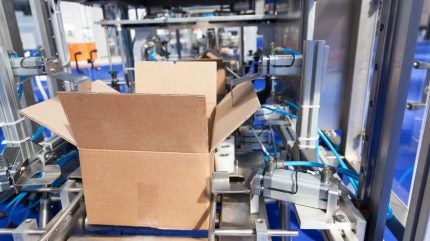
Sasol Chemicals has introduced a new lower-carbon wax solution, SASOLWAX LC100, specifically designed for the adhesive packaging industry.
The product boasts a 35% lesser carbon footprint compared to traditional options without compromising performance, according to the company.
This latest addition to Sasol’s growing sustainable product portfolio follows the recent launch of SASOBIT LC for the asphalt industry.
Both products are positioned as drop-in replacements for existing standards, allowing customers to significantly reduce their scope 3 greenhouse gas emissions.
“With a 35% reduction in carbon footprint without compromising on quality, our lower-carbon product range allows customers to significantly improve their sustainability performance while meeting the highest industry standards,” said Dirk Uys, vice-president at Sasol Chemicals Sales.
“We are committed to expanding this significant improvement in the PCF to more markets and applications, enabling customers across other industries to benefit from our sustainable solutions.”
To ensure transparency and credibility, Sasol’s carbon footprint calculations for its GTL FT wax value chain have undergone a rigorous third-party review and adhere to the ISO 14067 standard.
SASOLWAX LC100 is tailored for the market where hot-melt adhesives (HMAs) are widely used.
The product offers the same properties as Sasol’s industry-standard SASOLWAX H1, including enabling odourless and crystal-clear HMA formulations, smoother adhesive application, faster set times, and improved durability and thermal stability.
These features translate to benefits for packaging manufacturers such as increased box closures per adhesive unit, higher production line speeds, and enhanced operational efficiency.
Sasol’s commitment to sustainability extends beyond the packaging industry.
The company’s SASOBIT LC offers similar advantages for asphalt formulators, including lower production temperatures, reduced emissions, and improved asphalt performance.
By providing lower-carbon alternatives without compromising performance, Sasol aims to support the industry’s transition towards more sustainable practices.



